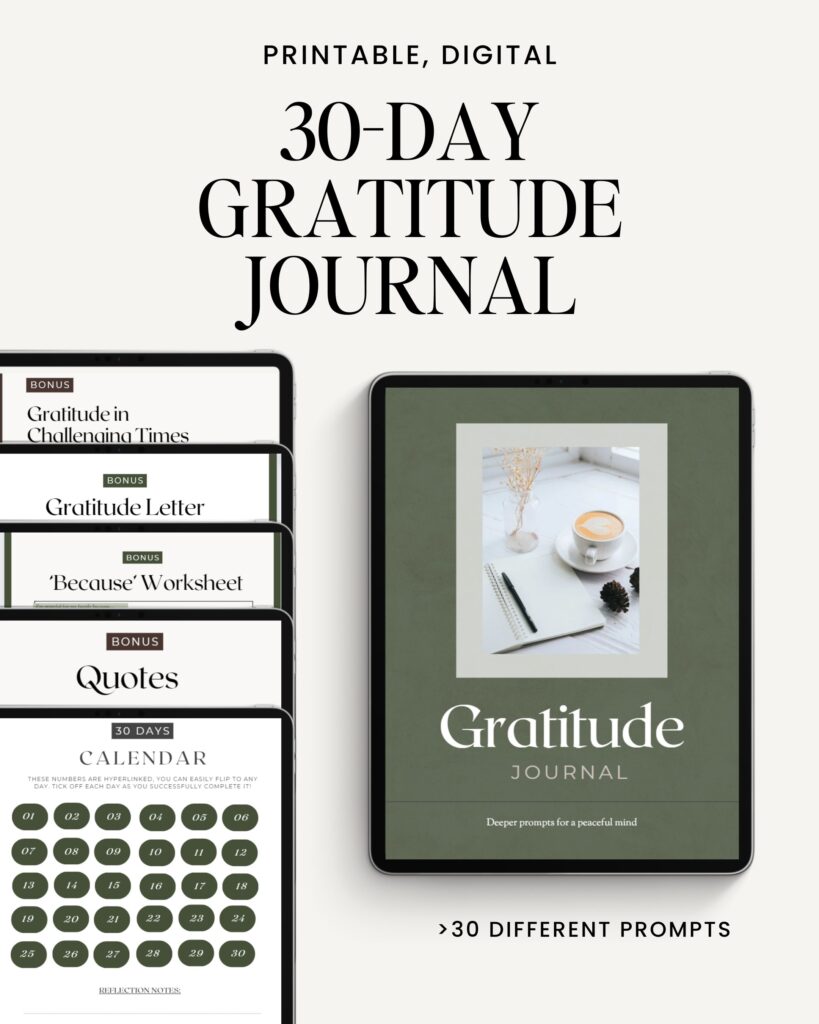Do you ever make things harder for yourself? You do something that feels good in the moment, but you know it will make you feel worse later? And somehow you just can’t help yourself?
People call this self-sabotage, but let’s explore it differently. We don’t self-sabotage on purpose. It’s not like we want to make things harder on ourselves or fall off our goals and healthy habits. Sometimes, it just happens. We don’t know another way. We think we can’t control it.
Instead of self-sabotage, think of it as poor coping strategies. We do things to soothe ourselves when we feel stress, fear, or something else, and we end up doing something that might comfort us in the moment but that actually hurts us in the long run. We think we’ll feel better. We want to distract ourselves. But, in fact, we’re destroying our own progress.
Understanding Self-Sabotage
Why do we make choices that go against our best interests? Choices that leave us feeling worse and unfulfilled? Or maybe that feel good in the moment but worse over time? Today we’re going to explore why we hold on to these choices, and more importantly, how to break free from these patterns.
The Power of Recognition
The first thing to realize is that it is a pattern. They’re quick fixes, temporary distractions that provide relief in the face of stress, fear, or discomfort. But over time, they can evolve into destructive habits. Ones that we don’t pay attention to. It’s a reaction. You feel stress, you worry. You need a break, you scroll through your phone, you feel sad or stressed, you eat. Whatever your pattern, it’s a reaction. And usually, it’s because somewhere along the way in your life, you learned that doing that gives you a soothing feeling.
Transitioning from Reacting to Responding
It happens with our behaviors, with our thoughts, and even with our words. If someone rejects you, you might feel like you should never put yourself out there again. If your partner disagrees with you, you might feel like they’re not listening and then feel defensive or reactive, or raise your voice. All of these patterns are reactionary. Believe it or not, they almost feel good in the moment. They feel familiar and soothing.
It’s like a warm blanket wrapped around you. But, in fact, what it really is, is quicksand, sucking you down away from the life you want to live.
Taking Action: Building Self-Supportive Habits
So, how do you change negative coping strategies into positive ones? It’s about recognizing your patterns and triggers, but it’s also about noticing. Notice how these patterns make you feel in the moment. Notice how they make you feel after, how, after the initial soothing feeling, it actually harmed you.
The Power of Persistence
This is the part that most people skip. We want to change a behavior, but the act of noticing will help you to untie the connection between the trigger and your reaction. The idea here is that you want to respond instead of react. It brings what is subconscious and automated, into what’s conscious and mindful.
To be clear, it takes energy. It takes energy and effort to pay attention to the things that are important to me, the things that I want to make sure I’m intentional about.
And this is what happens to so many of us when we rely on our default reactions, when we ignore our emotions, when we dismiss things and hope they go away. We make things harder on ourselves.
Now that we know it’ll take some energy, we need to take action.
So first it was knowing your patterns.
Next it was figuring out your triggers.
Then it was noticing. Specifically noticing the links between your patterns and your triggers. What you do that isn’t helping you, and why you do it. And how it feels. How it actually hurts you instead of soothes you. We’re trying to break the pattern here, so we need to start cutting away at the rope that links the triggers and the patterns.
Now, we need to take action.
Rewiring Your Brain To Stop Self Sabotage
And at first action can feel like it’s going against instinct. Action can feel uncomfortable. Action can feel like climbing uphill. And that’s when we need to put more energy into making changes that will improve our lives.
Time and energy that we don’t always feel like we have.
Which means, either I let myself get carried away with the momentum of life. OR I chose to spend my time and energy on what’s important to me, and let the other things go.
This is the hard part, right?
I don’t want to motivate myself.
I don’t want to put my phone away.
I don’t want to exercise.
But I do want to do amazing things in life.
I do want to focus on my family and my work.
I do want to feel fit and active.
Willpower Doesn’t Work When You’re Stressed
And here’s where I think the general conversation about personal growth is skewed. So much of what I see online is about discipline, or productivity or habits – all of which are important. But all of that relies on willpower. And clarity of thought. And determination. None of which you have when you’re dealing with stress, or uncomfortable feelings.
So what do we do?
The action we take needs to re-train our subconscious brain. It needs to break the existing trigger-pattern reaction, and offer a new one.
So I’m going to offer a few tips here but if you haven’t yet listened to my episode about how to REALLY create a habit, I talked more about it there so feel free to check it out after this one. I talked about how it doesn’t really take 21 days, instead it takes shifting your associations and perspectives.
So it’s similar here. If you have negative coping strategies that are sabotaging your goals and dreams and life there is 1 specific action I want you to take – after you’ve recognized your patterns and triggers, after you’ve noticed the connection in a meaningful and conscious way. I want you to create self-supportive coping mechanisms.
Create Self-Supportive Coping Strategies
So instead of self-sabotaging coping strategies, we’re going to create self-supportive ones.
What do I mean by that?
You’re going to start practicing, repeating, drilling it into your subconscious that handling your triggers in another way is better than what you’re currently doing. You’re going to create an alternate pattern.
So for example, if you want to reach for your junk food drawer when you’ve had a bad day. Stop, recognize what you’re doing and find something else that – and here’s the important part – soothes you. Something that makes you feel calm, better about yourself, better about your emotions. Something that helps you manage your emotions. Because if you feel like you have to have willpower, or that you’re denying yourself some satisfaction then it’s not going to work. We’re trying to build a new connection. A new thread between your trigger and your reaction. We want to change your reaction into a response.
I’m going to give you some examples here to help:
I love dessert. I love sugar. I know, when I tell people this they’re always surprised because I was in naturopathic medicine and I talked about nutrition, and for the most part I do try to eat well, but I have weaknesses and cravings just like any other human.
So when I’m tired, when I’m stressed, when I feel like having a treat, I reach for sugar. It’s a pathway that was created a long time ago and those strings are strong. Because of course they get reinforced by the fact that sugar tastes good, and my brain feels stimulated and I feel energized.
But, when I started really paying attention, I realized that after I feel good, and energized, I crash. No one talks about the crash. But inevitably, maybe an hour later, I will start yawning, I will feel like flopping down on the sofa, I will feel like I need another sugar rush.
So now I’ve noticed my pattern, my triggers, and what really is happening. Not to mention that I get grumpy when I’m eating sugar – that one I denied like crazy for a long time because I really didn’t want to admit it but it’s true. I have less patience, less calm in my mind when I’m eating sugar.
So I started trying to create new self-soothing behaviours. And I’m not saying it’s easy. And it’s not the only thing I did of course. But I did it for years. Because I wanted to create a new connection. So now, when I’m tired or stressed, I go for a walk, I try to take a nap, I call a friend, I breathe, and then I ask myself, do I still want that sugar?
Like really want it? Is it a response that I’m consciously aware of, or is it a reaction that I’m doing on auto-pilot?
And yes, I still do eat sugar. I wish I could tell you that I went off it completely, but that wouldn’t be honest and frankly, I still enjoy it. But now I eat much less. Now I eat it for the joy and pleasure of it, not to fill an emotional void or an energy low. I have rules around it (I should expand more on that in another episode because the rules help me make decisions about when and when not to eat it). I have smaller quantities of it, and as a result, I’m much less likely to turn to sugar as a coping mechanism and it’s less likely to self-sabotage.
I know this is going to take time, and repetition but when you become really aware, consciously aware of your automated reactions, you can start to finally change them.
I’m interested, what reactions are you trying to change? What have you tried before? What worked? What didn’t work? I’d love to connect and learn more about what you’re struggling with.


+ show Comments
- Hide Comments
add a comment